When one says Circus Humberto, many people think of the writer Eduard Bass, author of a fictional chronicle of several generations of circus performers and the name of a fictional circus. The book, published in 1941, was based on authentic experiences. He did not live to see the name of the novel applied to the real Humberto Circus by the state-owned Czechoslovak Circus and Variety Company ten years later.
However, Circus Humberto is still bringing joy to young and old today. For the last 30 years, its owner has been Hynek Navrátil, with whom we talked about the joys and sorrows of life as a principal and animal trainer.
Circus Humberto is our most famous and largest circus. What made you decide to buy it?
My brother Bohumil and I bought the trademark for Circus Humberto 30 years ago. My parents and grandfather had a circus, but when nationalization came, all the circuses were nationalized. So then my father worked for the state circuses, and my brother and I also worked there as dressage drivers. In 1992 the state circuses in our country closed down, so my brother and I took up jobs in France and Germany. There we decided to rebuild our own circus, which was the one that my grandfather and great-grandfather had, although of course under a different name, Circus Konrad. At that time, Circus Humberto, which was the only one for which the state circuses had registered a trademark, went up for auction, so we bought it and started our business from scratch. In 2011, my brother became independent and runs Circus Bob Navarro King.
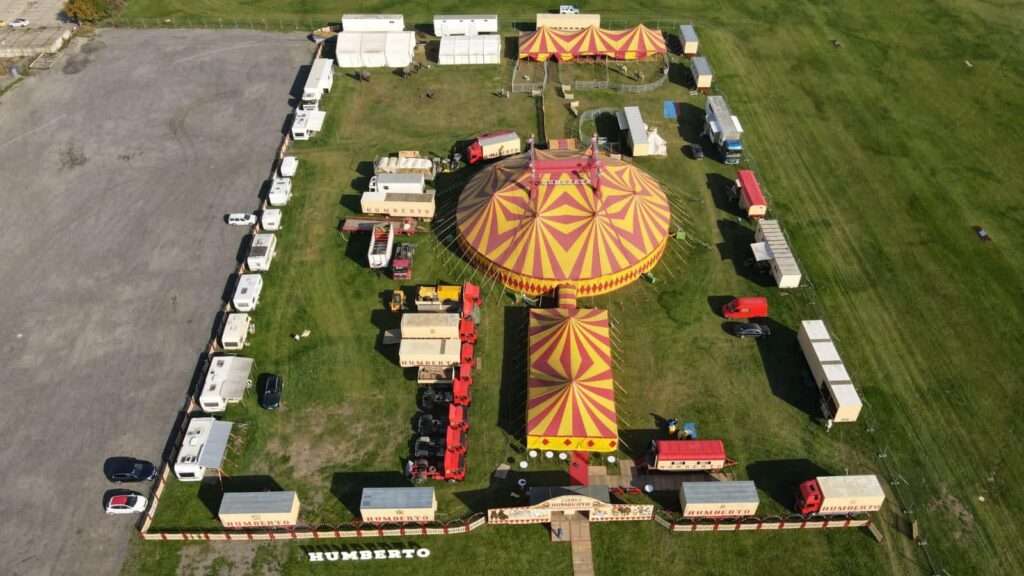
Do you have a comparison with other circuses? How many of them are currently in the Czech Republic? Do you know each other and are you more friends or competitors?
Over time, about 30 different circuses have sprung up here, including Berousek, but at the moment there are about ten. We get along normally, we try to get along, with some of them it works, with some of them it's impossible to get along. There's also rivalry between some families that don't have to. Nowadays it is not a problem to get a big circus tent and engage performers, but it is important to meet the financial obligations to the performers and technical staff. So my credo is not to be indebted to anyone. The circus does not receive any subsidies, it depends only on the satisfaction of the audience, because it finances everything with the money from the entrance fees.
Is it a rule in your family that this craft is inherited for generations?
I'm the fourth generation of comedians in our family and my two boys are the fifth. I don't know about extended family, because we comedians met when we were travelling around Europe. For example, my grandmother was Austrian, so we have some family there too, but I don't know if they're in the business or not.
I was around animals from a young age, trained as a breeder of foreign animals and worked as a groomer for my father for ten years, where I gained basic experience, then took over dressage for state circuses, and eventually developed my own dressage for camels, bears and dogs. At the state circuses I had the highest rating, the highest class as a dressage rider of foreign animals.
But circus performers have to be versatile, my father was also a foot juggler and an excellent clown, my mother did aerial acrobatics and assisted. My grandmother, whom I mentioned earlier, was originally a prima ballerina in Vienna, but she died young, at 45, and we lost contact with her family. I only vaguely remember my grandfather, he used to ride around on pilgrimages with his bear, a classic of sorts.
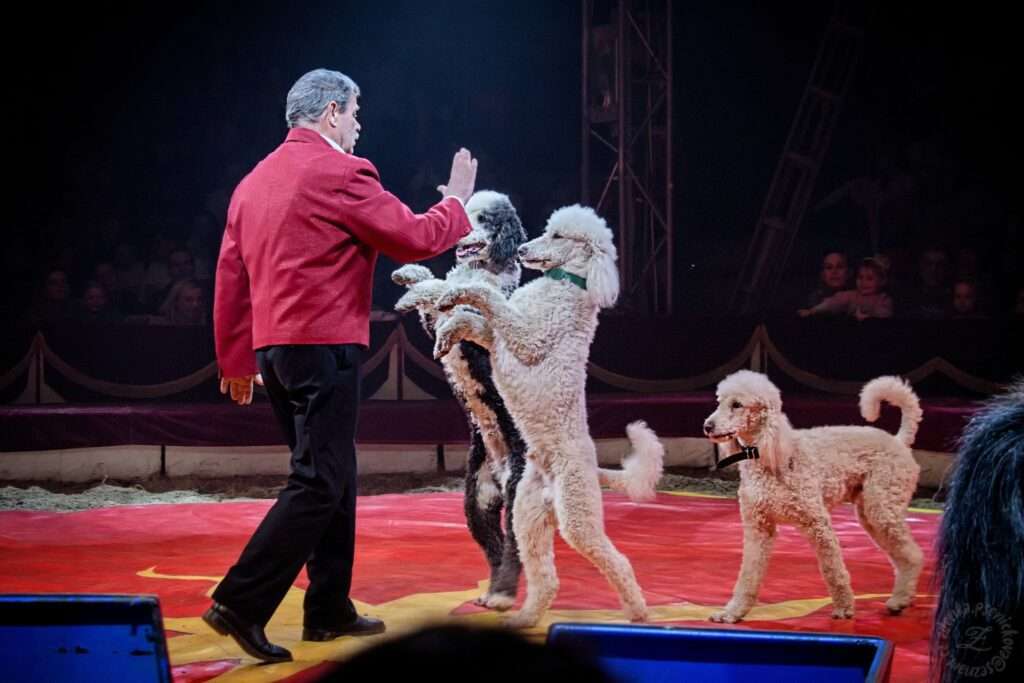
How did you build your relationship with the animals? As a caregiver, you certainly got off to a good start, but how do you train them?
Everyone has their own style, there are different tricks, but not a whip, more of a treat, it's passed down from generation to generation. My brother and I both pay attention to training for reward. And even my boy (Hynek Navratil Jr., nicknamed the Lion King), he has 16 lions and he trains all of them for a reward, for praise. We're not into petting, we're talking about beasts, you can't pet a bear or a lion, it's not a dog. There has to be respect, discipline and love, and that has to be combined. It's like a dog in a training ground, in the end there has to be discipline with children, that's my opinion. I don't advocate the Nordic type of upbringing, I think a slap at the right time will help, rather than then having the child run over by a car on the road. I wouldn't succeed in Norway, my children would probably be taken away from me.
And what professions do you need to master to keep everything running like clockwork in the manege and in the backstage? What does your day look like?
Depends what day it is. For example, when we finish and move on Sunday, on Monday we do dismantling and are drivers, we move to the new site, then we build again, on Tuesday we find food for the animals and on Wednesday we are artists and dressage. And in the evening we start thinking about where we will go for the next stint, which city and who we will engage, which artists we will approach for the next season. Currently we have artists from France, Chile, Russia, Ukraine, Italy, Colombia and Czech Republic. So every day we deal with something different and every day something unforeseen usually happens, that's the circus.
Who cooks for you and what cuisine do you prefer? Do the artists follow any diets?
There used to be a cook at the state circuses who cooked for everyone, and we had one, but there were problems with that, so we took it away. Now we have food delivered in every town, and the boys are pretty spoiled, we used to order one kind of food for every day, now they deliver something different for everyone every day, there are 10 technical staff, so they deliver 10 meals. They're picky, because some people might not eat something, but I say they're hungry. The artists cook for themselves, my wife cooks for me, and very well.
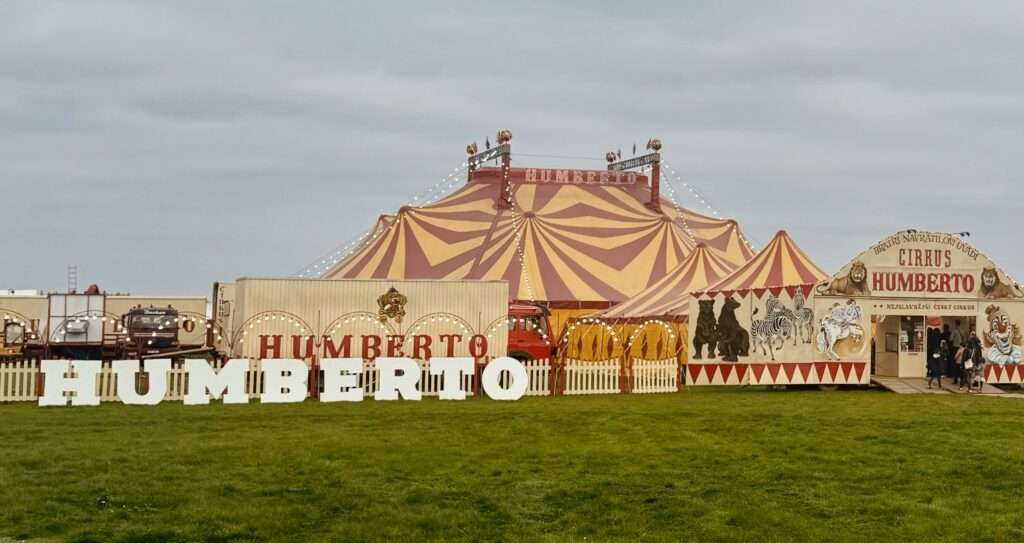
How do you choose your life partners, are they also from circus families?
We usually meet our partners when we travel or when we engage a new artist. I met my wife on a tour in Russia, where she was an artist. Also at weddings and funerals. Some people might be surprised, but in our comedy community, big weddings or big funerals are normal because when someone dies, we all want to pay our respects and say goodbye. With weddings, those receptions might look like a blowout, but it's because we haven't seen each other in maybe five years, so we get together, and usually we all have big families, so it's normal for 100 people to get together, and that's where some of us get together.
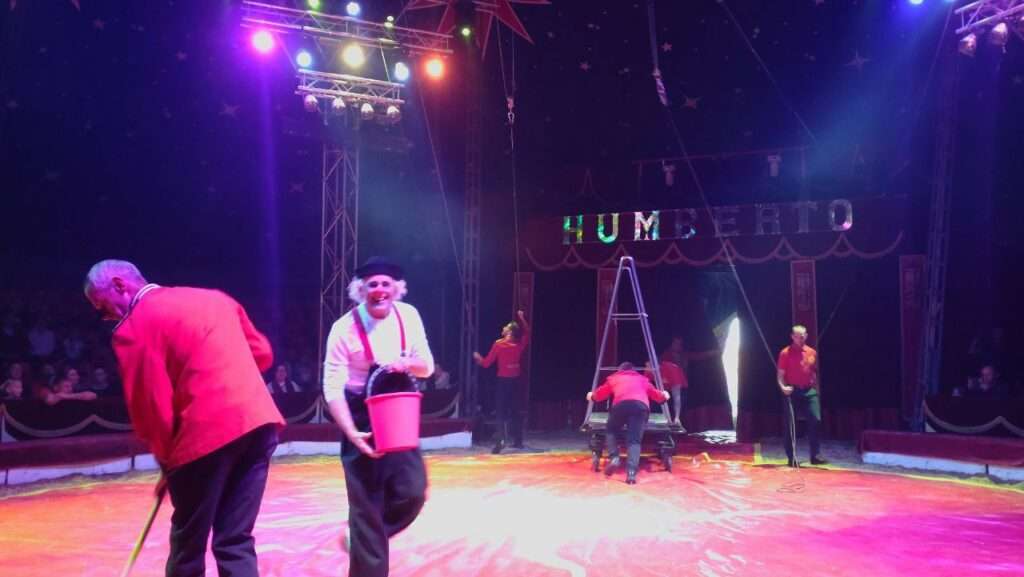
And if the partners are not from a circus family, how do they cope with nomadic life?
If the partner is from a private place, he has to get used to the nomadic life, because we cannot adapt. Sometimes it's hard for him or her because we have a lot of work and it's not about working eight hours and then having a free weekend or thinking I'm going to crash at two o'clock and go to the cottage, it's done all the time here. Of course, we don't work till the end, one day we work 16 hours, one day 4 hours. In the summer it's all right, some people might think we're on holiday here, but then when it starts to rain, snow and frost, and we have to demolish or build everything in this mess, then we fall into bed at night like dead. Just to give you an idea, our circus tent is the biggest in the country, it is 32 metres in diameter, 13 metres high and the manege is 11 metres in diameter.
What about children from circus families, are some of them considering other professions?
Yes, it also happens that children go away to study and don't come back, but these are exceptions. Different times, different morals. Our profession is time-consuming and physically demanding, and it's not that well rewarded. If someone is a top performer, they will provide for their old age, yes, but it's not free. It means six to eight hours of training a day.
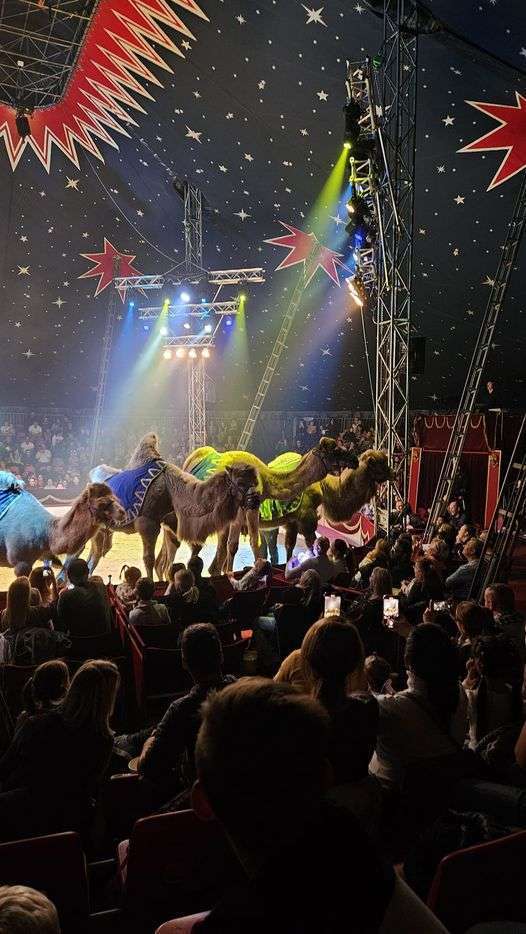
When do future artists start practicing?
Mostly from childhood, they learn various elements and tricks from adult artists, try them out and often learn things by playing that they could have been an artist at the age of ten. Riding unicycles, doing ladders, juggling or handstands, snake woman, these things have to be loaded on the body slowly from the age of maybe five. Every parent wants his child to be a genius, that's true, even if the father is a doctor, he thinks his son will be a doctor too, but it can be completely different.
What's your youngest performer here?
I guess it's the Ukrainian artist Nastya, she's a little over 20 years old, she's very clever, she tries hard and she's not afraid, sometimes I'm afraid she takes too big a bite, she's always trying something new. But we were like that too.
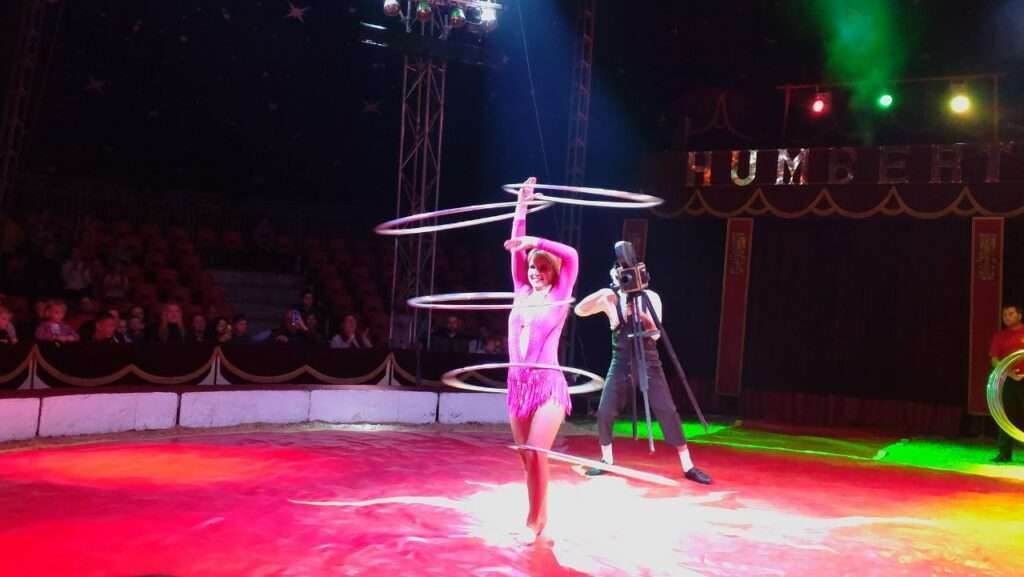
Is there a school for artists?
They used to be able to go to Moscow to study, there was a State School of Circus and Performing Arts, maybe it still exists, for children from all over the world, or rather from Eastern Europe, they used to go there from Cuba. I don't know if anyone can imagine, 300 young people in a boarding school. They sent two from us, about twenty from the privates, and as far as I know, there are about ten artists with high school diplomas who never performed. They didn't last. As I said, families who know something don't send their children anywhere, they teach them themselves to carry on the tradition.
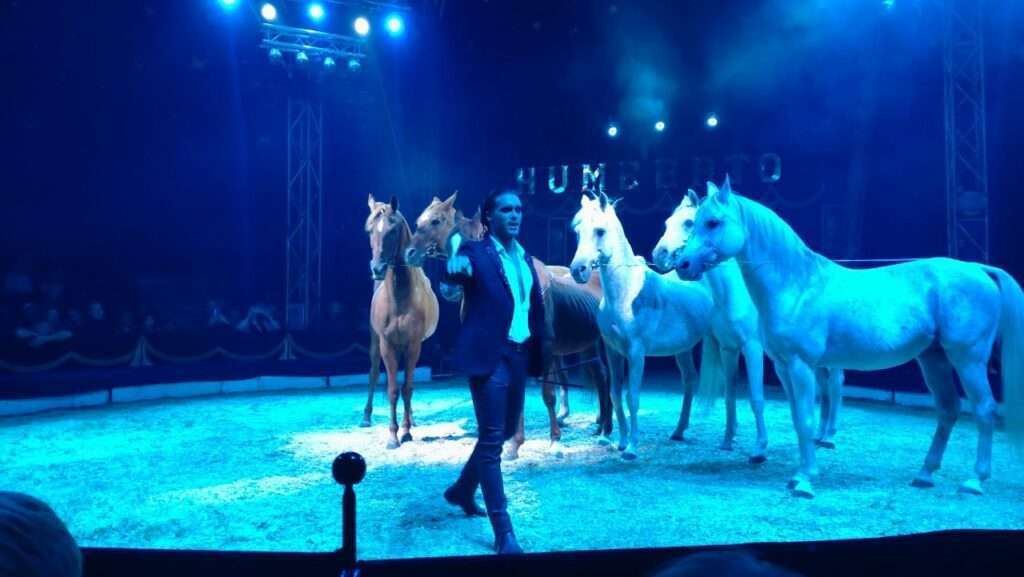
Doesn't family life suffer from submarine sickness when you're still together?
So it came upon us in 1983, when we were still with the state circuses, when we were in Central Asia for about 11 months, it was unbelievably hot, 45 degrees in the shade, and we had three shows a day, we were getting on our nerves. We weren't performing at 100%, and you could tell even the animals weren't doing it with that much joy. And the salaries weren't great either, I was working for 2400 crowns a month and I had a plan of 350 performances a year. That's why later on my brother and I made our own circus, where we are the masters.
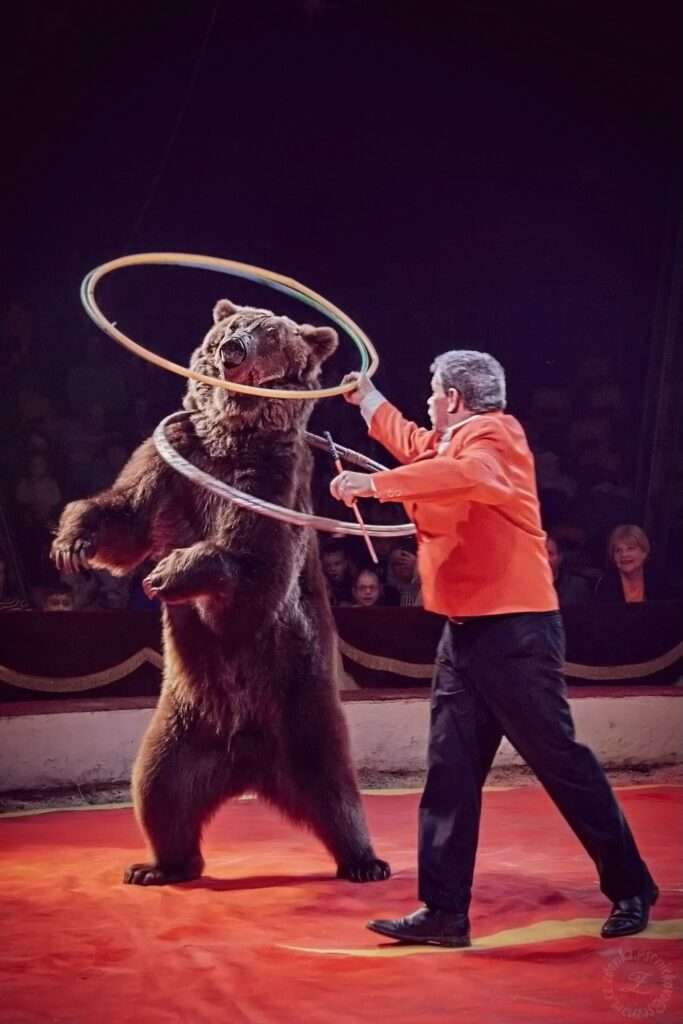
How many times do you change your stops in a season, how long do you stay in one place?
We used to do two cities a week, sometimes three, but now we've cut back. We visit 13-15 cities a season, we play when we want and for who we want, and we engage the artists that suit us. We stay in one place for at least a week or 14 days, here in Prague we are now two months.
Previously, the normal fee was 80 cities. When the state circuses ended, I performed in France, and we did 60 cities in July and August alone. Every day in a different city. That was one of the reasons I didn't want to do it anymore, not only for myself, but for the animals. We also reduced the transports, I have respect for the animals and I respect them too.
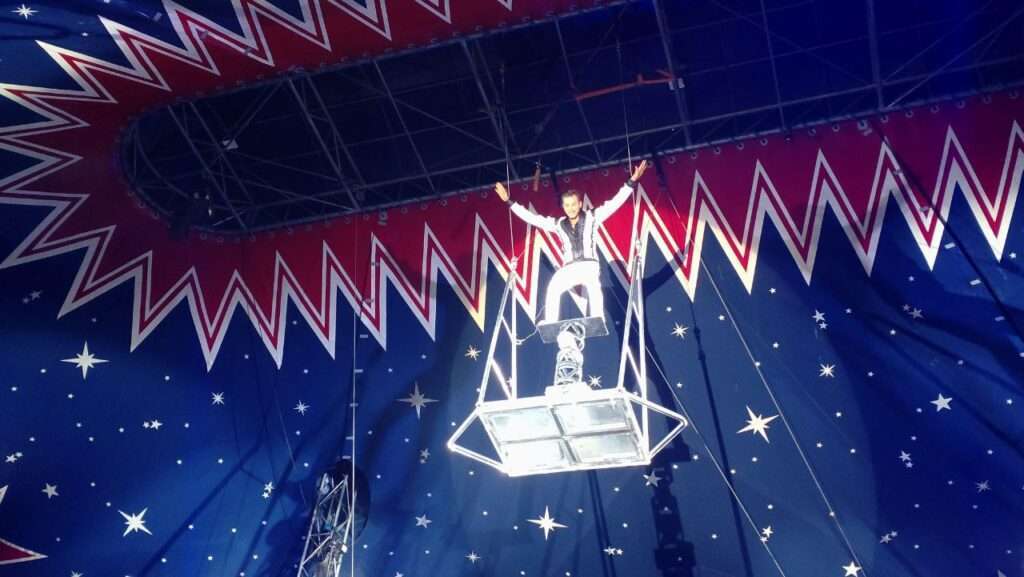
And how do the animals tolerate the transports?
I could show you if I let them go. They'll load themselves and unload themselves. They can tell when we're crashing, they're excited to go, then they're excited to get out of the car. You have to make them comfortable in the car.
How many animals does your circus have and how many trainers take care of them?
Now we have over fifty of them, horses, llamas, zebras, bears, camels, elephants and poodles. They're performed by me, my son and the third is an Italian dressage driver.
Do you also travel abroad?
We used to go, now we don't for one simple reason. If we were to go with this circus, we would be fine programmatically, but we would come as competition, and nobody likes competition. Just a big bureaucracy, a lot of red tape, you can't imagine. So if we're going, we're going to their circus as guests.
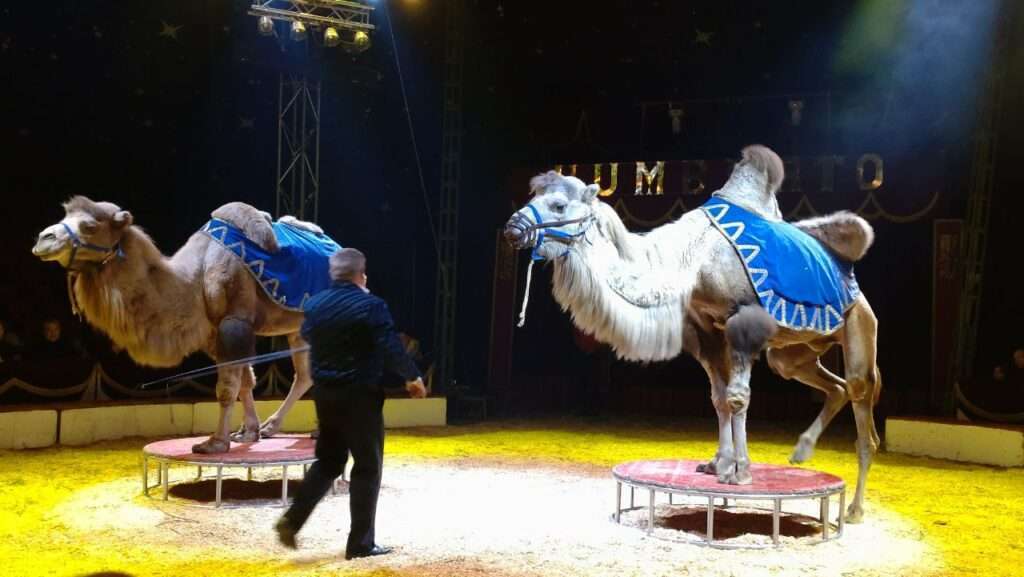
As of January 2022, a law banning circuses from breeding certain species of wild animals and from dressage of young animals is in force, which was championed by animal protectionists. How have you dealt with their protests?
I call it a terrorist activist group. I admire it when someone cares about animals and advocates for them, but this borders on bigotry. You'd have to experience that right after the revolution. I don't know what it has to do with animals if they spray paint all your marquees, puncture your tyres, smash every billboard in town, demonstrate outside the circus with cardboard boxes with meaningless signs and call you names. And we're supposed to behave? It used to happen that they provoked the employees and there were fights. They knew exactly how to do it. There was a desperate man with a camera at the back, and the next day the newspapers reported that a peaceful demonstration had been attacked by circus performers. I've been watching them for 30 years, if the public knew what really happened, they'd probably all be surprised.
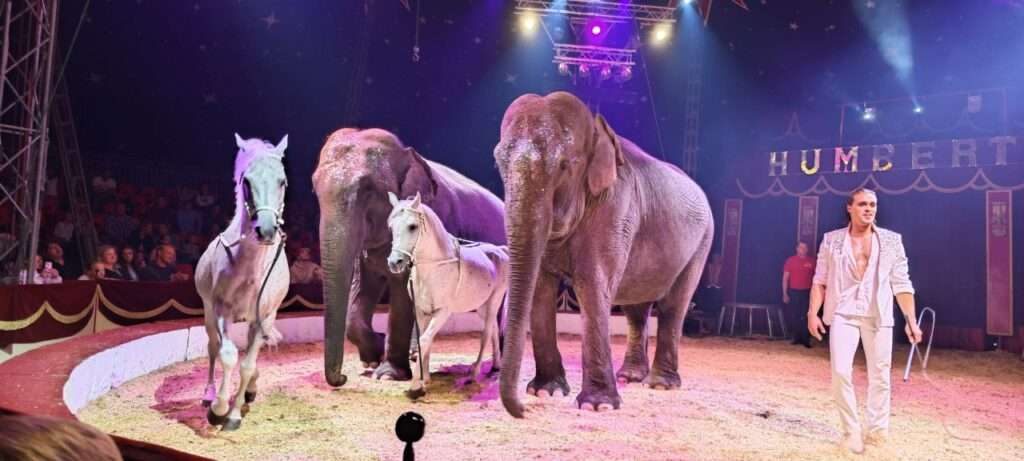
It's been quiet for 2-3 years now because they've gotten some bans, but I don't think any of them have ever been in a circus, depending on what kind of professionals they are. For example, Mrs. Pekarova Adamová, she hasn't been to the circus and she criticizes, so we took her to the circus. Sure, if an animal takes off after me, I'll punch it, but that doesn't mean I'll break the handle. It takes patience. If I hit an animal, it won't come at me and wag its tail, it'll run away. I've still got the leaflets they used to hand out to people to demonstrate our sadism: they say if we want to get rid of animals, we lock them in the garage and let the exhaust fumes out. Or another example that happened the year before last. We had a little camel who had some digestive problems, so we had to give him an IV. And to avoid having to put a cannula in him every day, we made him a collar. And two cops came to the circus and said they got a report that we were strangling a camel. So I called the vet to explain it to them, and I didn't forgive myself for saying that they came to the denunciation in half an hour, but when they demolished our circus, we waited for them for over 4 hours. All I had to do was ask on the phone.
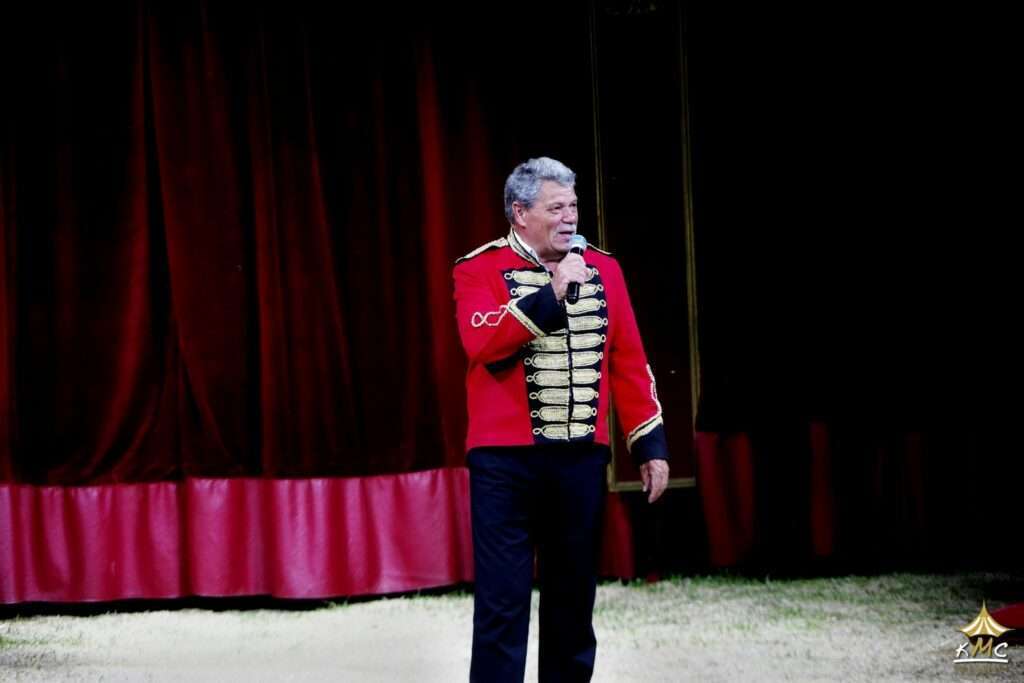
Your last performance of this year's tour will end on Sunday 24th November in Letňany, Prague. Where will you move to for the winter and what does your winter programme look like?
At the end of the season all the artists go abroad and we go to our wintering ground in Stará Lysá in Nymburk, where the animals have their own facilities and we have a training hall there. It's a joint wintering ground with Circus King.
Our season ends on November 24th and we start again on February 15th. People will change for vacation, we will try to think of something new, new choreography of the program and it will go by like water. We have promised new artists, but I don't want to talk about it until they are here on the set, it has happened before that it didn't work out. But those who want to see our circus show WITHOUT LIMIT, now is the last chance, next year we will present something else.
Circus Humberto can be found at the PVA Expo Prague in Letňany. Performances take place from Wednesday to Friday from 6 pm and on weekends and holidays from 4 pm, no performances on Mondays and Tuesdays. The animal arena is open daily from 9 am.
On Monday 18 November you have the opportunity to take part in the filming of the New Year's Eve special of Šlágr TV in the circus. Filming will start at 6 pm, tickets will be available at the box office.
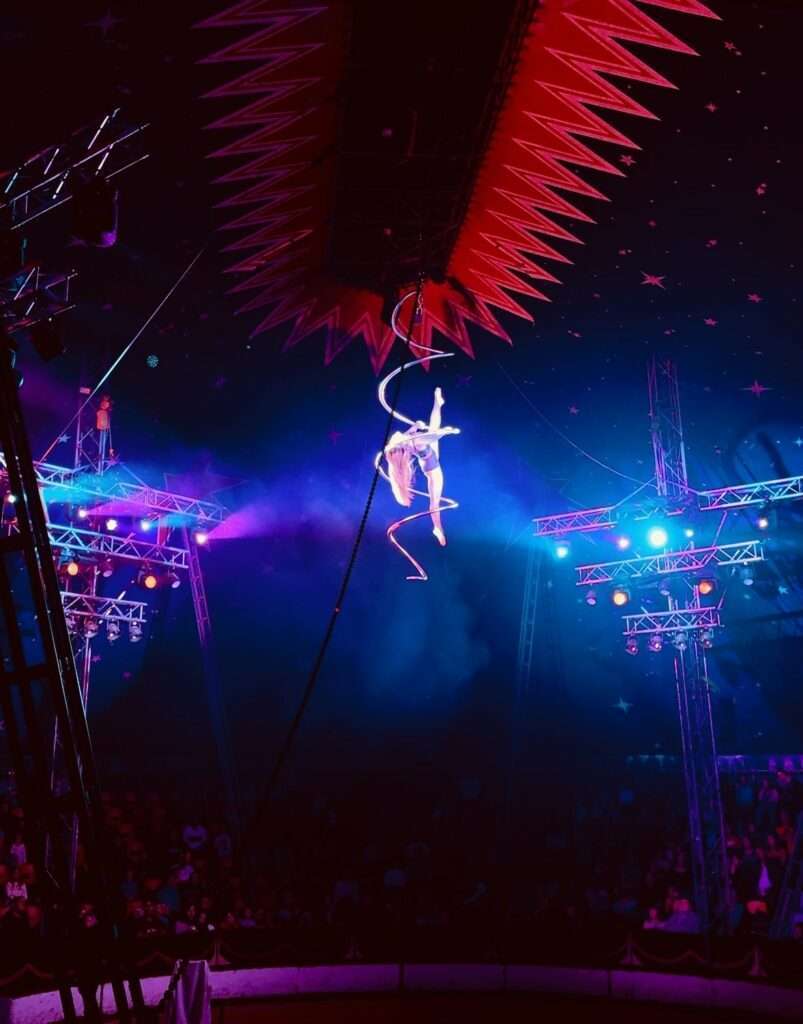
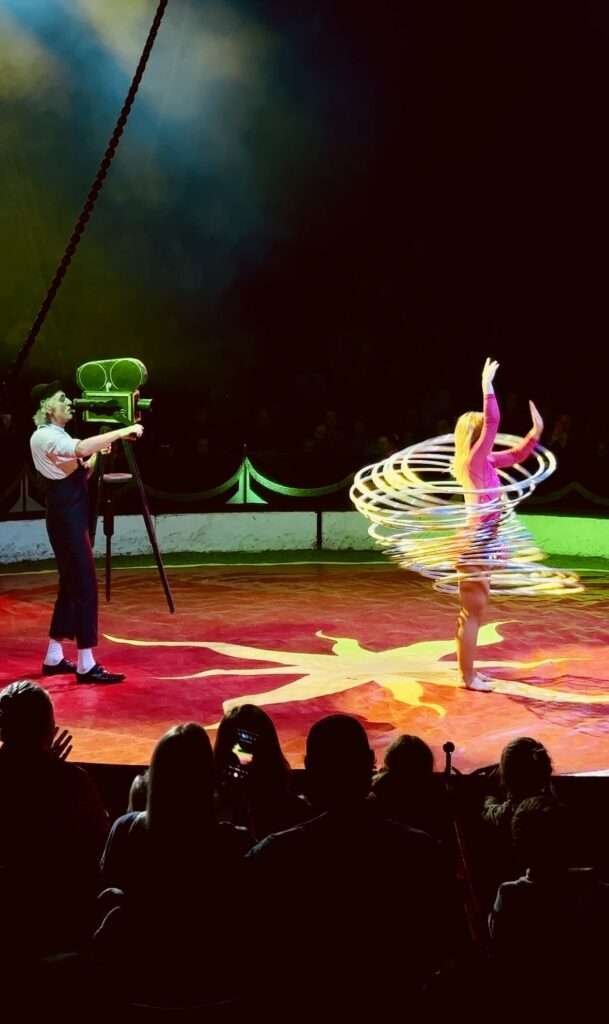
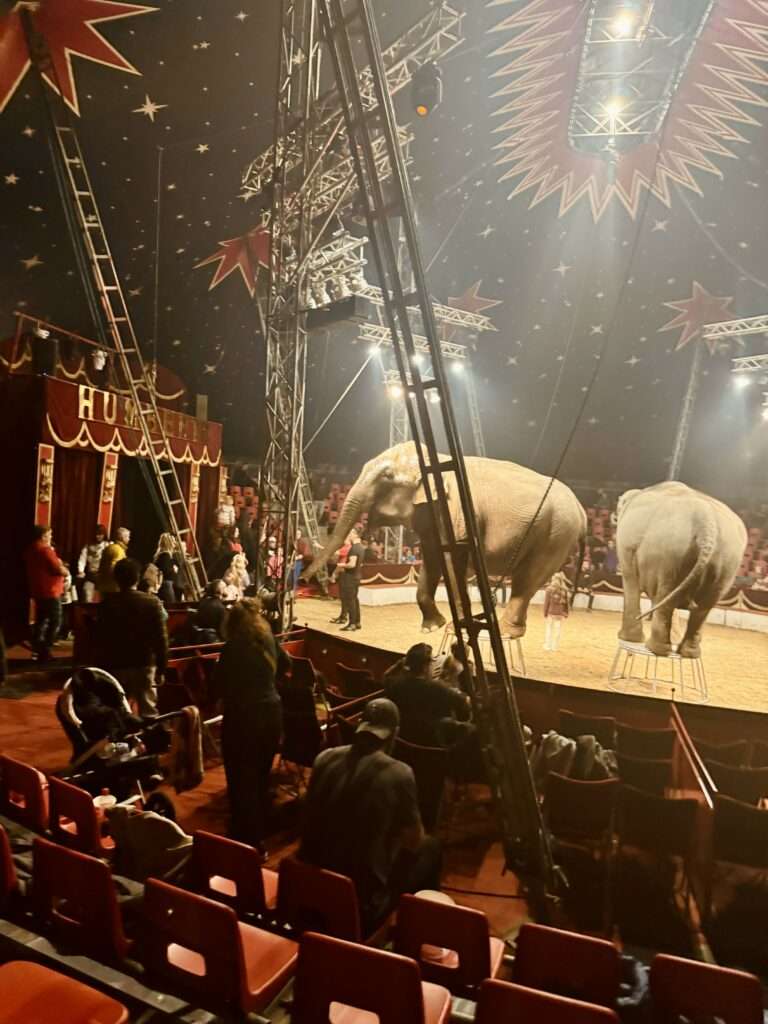
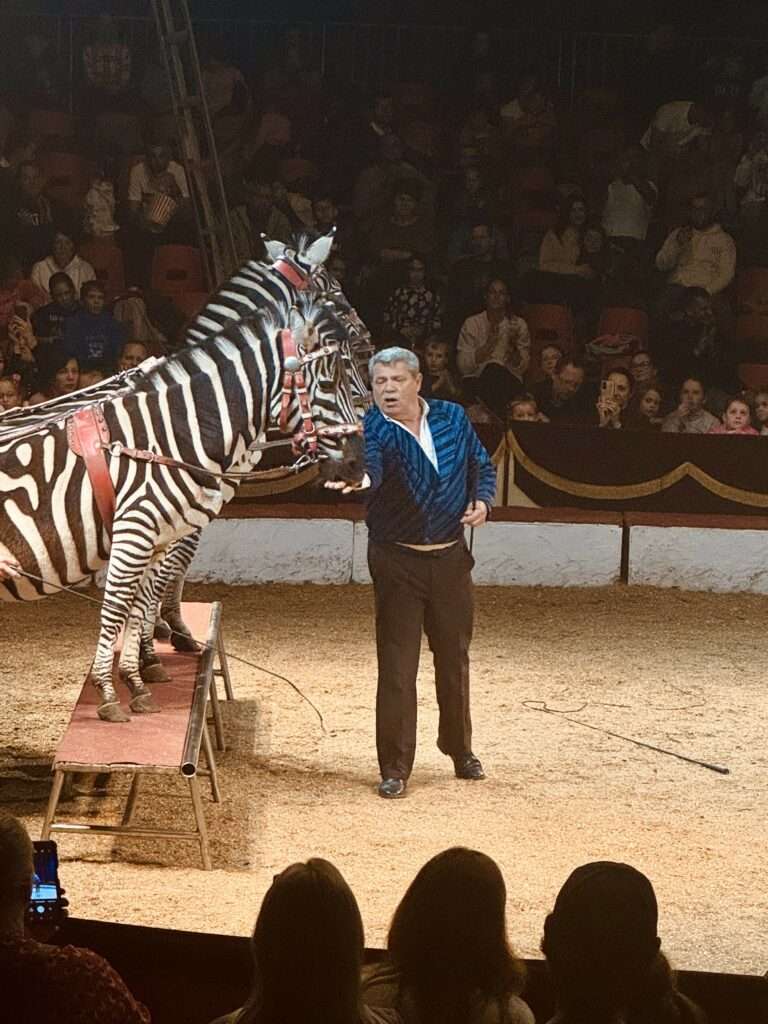
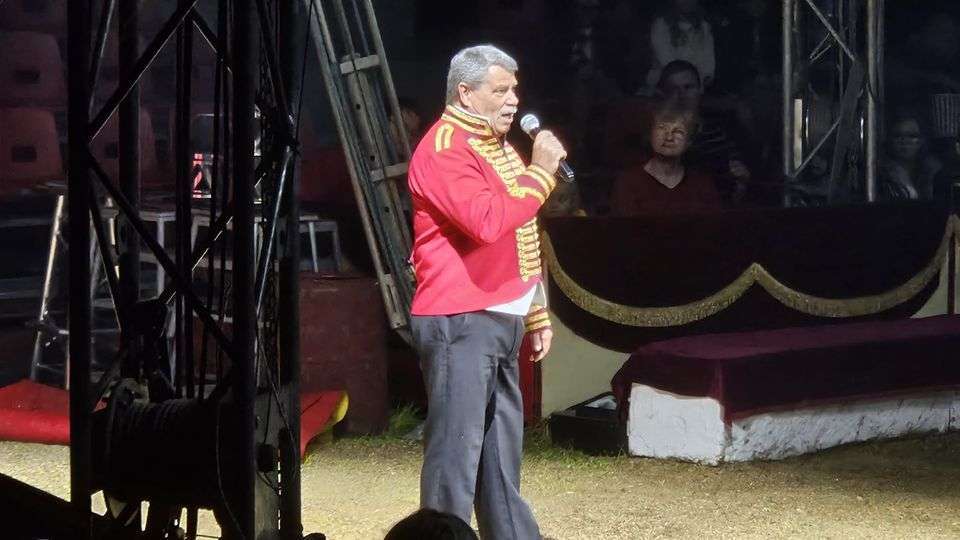
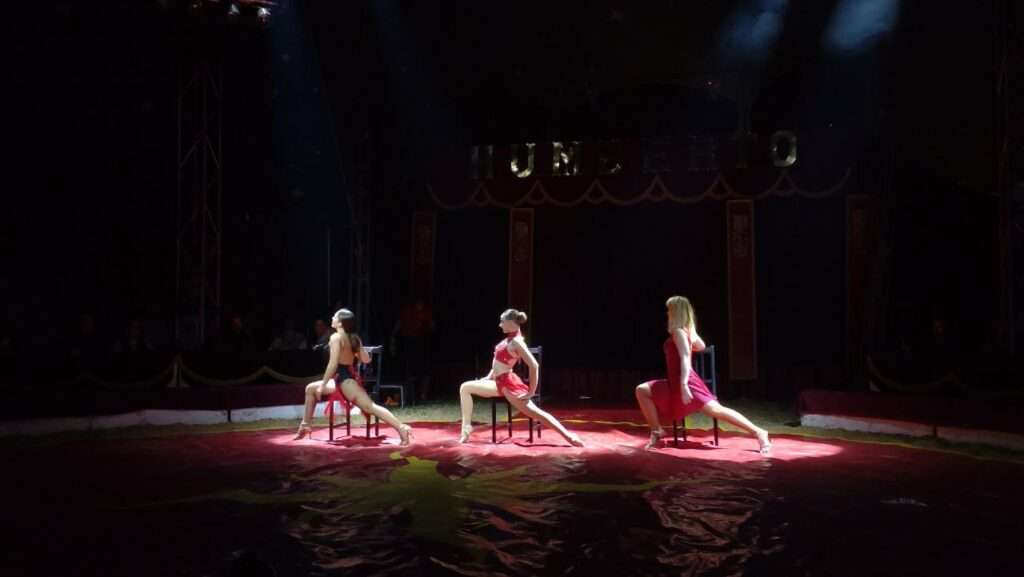
Gnews.cz - Jana Černá
PHOTO - gnews, Facebook



